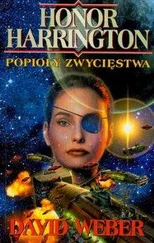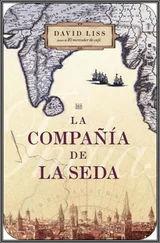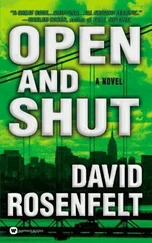Ridgeway Rovers was a great time for all of us, not just the players. Our families got involved, whether it was washing kit, driving us about, coming on trips or raising funds. That team was together for six years, which meant our families were, too. And you can’t spend that amount of time together without becoming pretty close. I remember Micah Hyde’s dad, Ken, used to have dreadlocks: him and my dad – short back and sides – would be stood on the touchline together on a Sunday for the Ridgeway game. The parents used to organise dinners and Friday night dances to help raise money to pay for the team. Even though it was Dad who took us for training, my mum probably put in almost as many hours on me and my football, despite her job as a hairdresser. She was the only one of the mums who drove, so if there was a minibus run she always ended up with the job. When Dad was out working, Mum would be the one who got me to where I needed to be, when I needed to be there, with the right stuff ready in the right bag.
Looking back, it must have been quite hard for my sisters, with so much of our family time being tied up with my football. I’ve spoken to Lynne about it since and she says she did feel a bit left out by it all. She’s three years older than me and had her own friends and just got on with her own life. Even so, when we were at school together Lynne would always stick up for me if there was any trouble. One lunchtime at Chingford High, I remember having an argument with an older boy in the dinner queue. He ended up whacking me out in the playground. It was Lynne who took me home. She made sure I was all right and that the teachers at school knew what had happened. Football, though, she didn’t really like at all. We’ve both got our own families now: Lynne and her husband Colin have a girl and a boy, Georgina and Freddie. Even though we don’t see that much of each other because of the kids, I’d say I feel closer to my older sister these days than I ever did when we were young.
It was different with Joanne. I was five when she came along. I can still remember standing in the kitchen at home and my dad coming in and telling me she’d been born and me bursting into tears. I really wanted a brother, of course. But we got on fine: if I wanted her to go in goal in the back garden, she never said no. She just trailed after me all the time: to football, the park, the shops, everywhere. Joanne’s a hairdresser now, just like Mum, and it’s only in the last couple of years, since she started working and I got married, that we’ve stopped being together so much like that. I suppose she had to grow up eventually; and so did I. Sometimes, though, I do miss having my little mate around. I’m sure Joanne misses running around with big brother as well.
Mum always tried to make sure we sat down together to dinner as a family. That was when she and Dad would try and get me to tell them about what I’d been doing at school. I do the same with Brooklyn now. If I ask him, I usually get the same response my parents got with me: nothing. It wasn’t that it was a secret or anything. It’s just how kids are, isn’t it? When I was at primary school, I’d be around to help with meal times at home. I would take Joanne out in the garden or in the front room to play so Mum wouldn’t be tripping over a toddler while she was cooking. When it came time to sit down, I used to have the job of laying the table. Then, at secondary school, I opted to do Home Economics – cooking, basically – because the alternative was a double period of Science. I enjoyed being in the kitchen when I was at home anyway. By the time I was thirteen, if Mum was working, she’d leave me to get dinner ready for all of us. If she was cutting hair at home, I’d make cups of tea and arrange little plates of biscuits for her clients while they were there at the house.
There must have been some kind of mistake, because when I moved on to secondary school – Chingford High in Nevin Drive – it turned out they played rugby instead of football. Lucky for me, our rugby teacher, John Bullock, was tough and disciplined but a lovely man. He was great with all of us and always seemed to have a lot of time for me. He was a fantastic teacher. He died a few years back, on the same night I got sent off against Argentina in Saint-Etienne, but he was the one teacher I stayed in touch with. Even after I first went up to Old Trafford, I used to write to Mr Bullock, as well as go back to see him and the school, which I think meant a lot to him. People have told me since that he really adored me, and just talked about me all the time.
I don’t think Mr Bullock was very interested in football, but there were that many of us boys going on at him, pestering him, that he agreed to give it a go. And everything changed. As soon as we had a school football team, we started winning leagues and cups, which was great for us. It was great for the school, as well. Maybe the football helped me to be happy there. I wasn’t that interested in lessons. I was cross-country champion for the local borough and swam for Chingford High, but there was only one thing I ever wanted to do with my life. I was lucky that I had that drive from a really young age. Knowing what I wanted in the future, what would have been the point in messing about along the way? I got in trouble once or twice for being cheeky, like every schoolboy does. But, most of the time, I kept my head down and did my homework: I used to pop into Alan Smith’s house and his mum, Pat, would help me with some of it. She was really good at Maths, I remember, and Alan was too. He’s in insurance now, working for Rothschild, and I run into him now and again: he’s married and has moved away but he works from an office in his mum and dad’s loft. The important thing was that I never missed a day’s school, unless I was ill, at either Chase Lane Primary or at Chingford High.
If it hadn’t been football, I don’t know what I would have ended up doing when I grew up. I liked Music lessons and, at primary school, they thought I had a decent voice. I sang a solo in the school choir just before I left there. One subject I really enjoyed all through school was Art. Even before I went to Chingford High, I loved drawing and painting. As well as doing it at Chase Lane Primary, Joan had all the stuff we needed for painting inside the hut in the park. On a rainy day at home, I’d spend hours copying Disney cartoon figures out of comics. I seem to remember Donald Duck was my speciality. As I got older, I began drawing cartoon figures that I’d made up myself. Even the artwork ended up coming back to football, though. Once I started playing for Ridgeway Rovers, instead of Mickey and Donald, I started drawing cartoons of games and the other people involved with the team: great goals, complete with Stuart Underwood in the background, his speech bubble describing what was going on in the rest of the picture.
Playing for the school team was the way into representative football, of course, and I was able to play District for Waltham Forest and County for Essex. I’ve been lucky to have such good coaching ever since those evenings over in the park with Dad. Don Wiltshire and Martin Heather, were both great for me as a teenager, though they couldn’t have been more different. Don, who managed the District side, was this solid, well-built man with a deep voice and a way about him that told you he knew exactly what he wanted for the team. When I first started playing for Waltham Forest, it felt like being selected to play for England.
People criticise schools football sometimes, saying it’s all about getting the ball down the other end quickly, using kick and rush tactics, with the bigger kids always being the ones who get a game. All I can say is, it wasn’t like that for me at school, at District or County level. All those teams tried to play. It took me a little while to get into the side because I was so much smaller than most of the other boys my age. But once I had a chance, Don and Martin both used to encourage me, and the rest of the team, to play to our strengths.
Читать дальше







![David Jagusson - Devot & Anal [Hardcore BDSM]](/books/485905/david-jagusson-devot-anal-hardcore-bdsm-thumb.webp)




